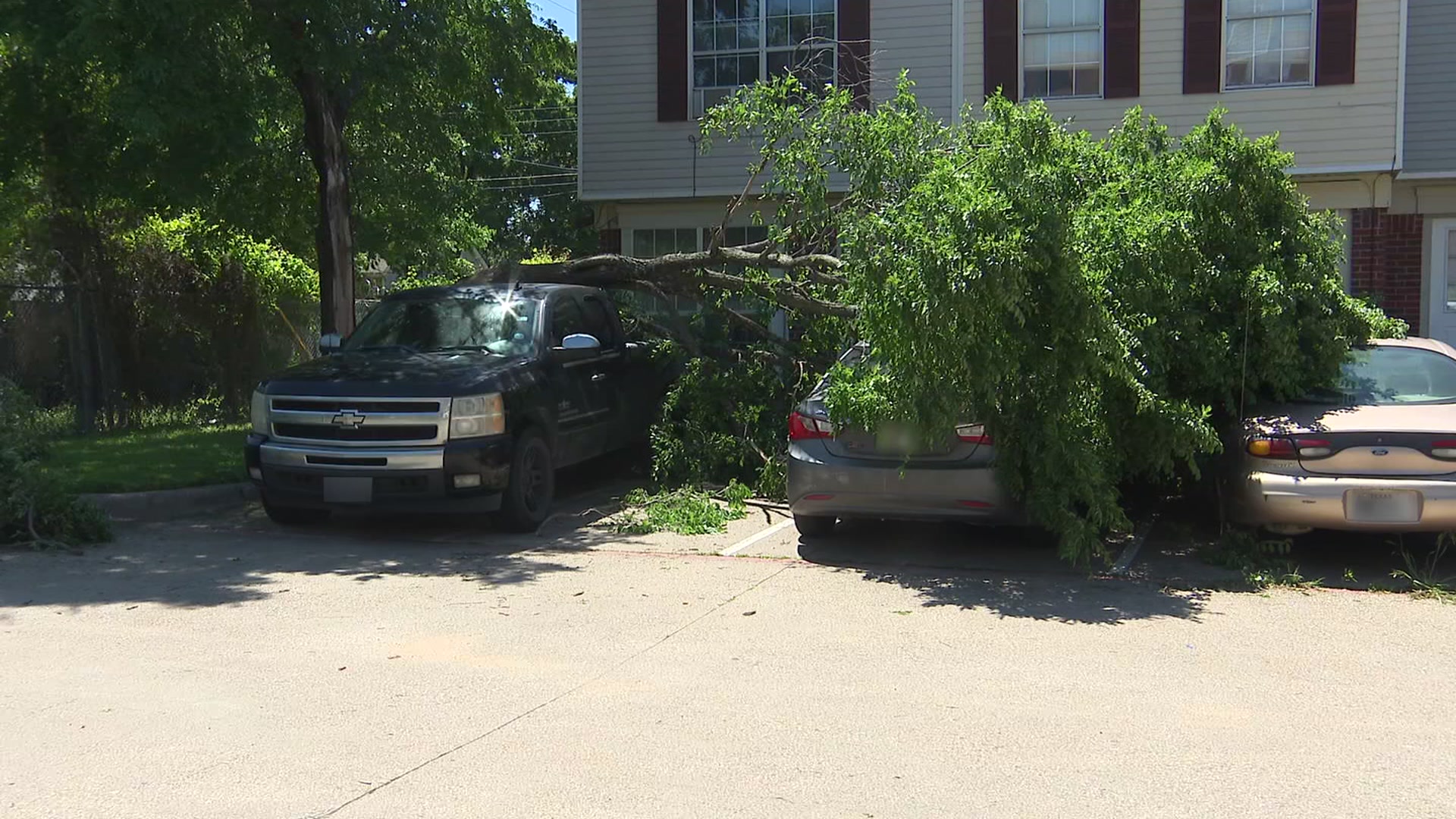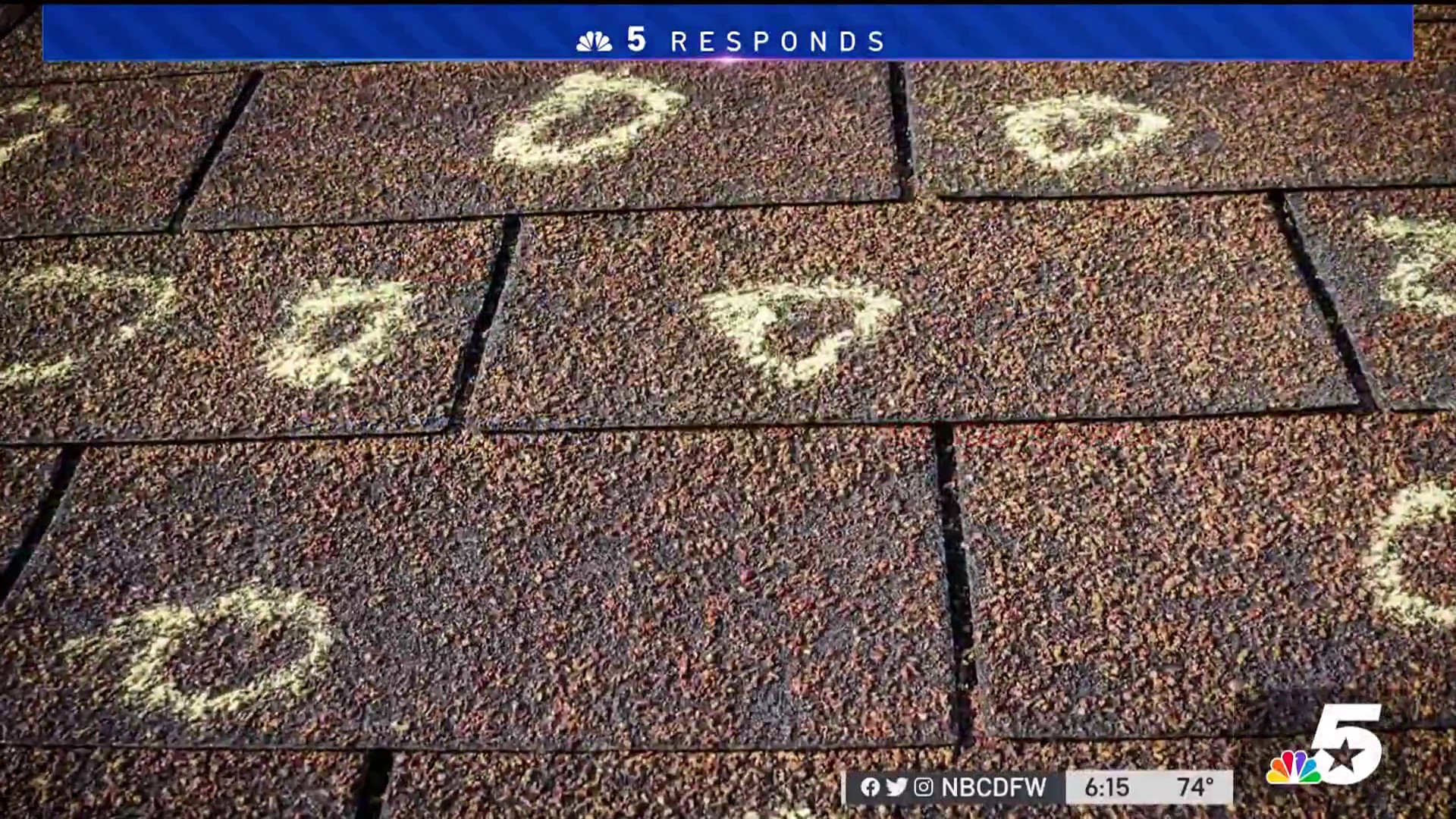Following damaging weekend storms, the weeks and months ahead will prove critical for the people impacted.
Read on for key steps to get started.
MEETING IMMEDIATE NEEDS
Facing significant damage, consumers may need help covering the basics like temporary housing, food and clothing.
Get top local stories in DFW delivered to you every morning. >Sign up for NBC DFW's News Headlines newsletter.
“Check to see if you have something in your insurance policy called additional living expense coverage, or ALE, that can cover your expenses if you need to get a hotel or a motel so you have a roof over your head,” explained Ware Wendell of Texas Watch.
ALE coverage is typically included in standard homeowners and renters insurance policies. Read the policy to confirm coverage and coverage limits. If you don’t have a copy of your current policy or can’t access it, you can request it from your insurance company or agent.
Save receipts for out-of-pocket expenses related to your insurance claim – including hotel rooms and meals.
You can read recent NBC DFW reporting on how to contact nonprofits and disaster groups for help here.
WHAT TO SAVE AND DOCUMENT
If you can make emergency repairs to prevent further damage to your home, save receipts and proof of payment.
Take videos and photos that show what happened. Preserve evidence of damage. The insurance company may want to inspect it.
“Save the damage because that damage is evidence. You want to make sure that's there on the property so that your insurance adjuster can see it,” explained Wendell. “Don't throw anything out until your insurance adjuster has seen it. Make sure that you document it with photos and videos as much as humanly possible.”
Save your communication with the insurance company. If you’re speaking with an agent or customer service representative by phone, get an email address. After each phone call, send an email highlighting what you discussed to create a written record.
“Follow up with an email to the insurance company's address so that everything is documented,” said Wendell. “There's no question about when you reported the damage, how you're communicating with them, how you're coordinating with them and the investigation of your claim.”
Keep a log or diary of every step of the recovery process. Include phone numbers you called, names of people you talked to and the days and times you communicated.
WORKING THROUGH A CLAIM
Wendell said to make sure you’re at the property when an adjuster comes to inspect the damage.
As the Office of Public Insurance Counsel explains on its website, a consumer may meet a claims adjuster on staff or a third-party independent adjuster hired by your insurance company.
A consumer may also interact with multiple adjusters. It’s not uncommon after a disaster.
You can ask the adjuster if they’re authorized to make decisions about your claim and ask for their in-house contact at your insurance company.
As you work through a claim, gather repair estimates from local contractors. You can read more about how to review contractor and adjuster estimates from the nonprofit United Policy Holders here.
UNDERSTAND YOUR COVERAGE
Read your current insurance policy to confirm your deductibles and coverage. For example, liability auto coverage wouldn’t cover repairs to your vehicle if it’s damaged by weather. Damage caused to your vehicle by something other than a collision would fall under comprehensive coverage.
For your home, understand if you have actual cash value (ACV) or replacement cost value coverage (RCV). As the state’s Office of Public Insurance Counsel explains, ACV pays less than replacement cost value coverage because it subtracts for factors like age and wear and tear. For example, if a roof is a few years old, ACV coverage factors in depreciation when insurance pays the claim.
HOME INVENTORY
We have shown consumers how to create a home inventory that documents the condition of a home and the contents inside - before a disaster. You can watch the story here.
If you don’t have an inventory and you’re asked to provide a list of contents lost in a disaster, you can ask friends and family for photos and videos taken inside your home to help jog your memory. Sample home inventory lists like this can help.
STARTING REPAIRS
If you are hiring someone to rebuild or repair your home, understand Texas does not require state level licensing for roofers and general contractors. It’s up to consumers to check them out.
Research how long the company has been in business under the same name. Look into complaints you see online and gauge how the company is responding.
Request references of past work and call those references. Ask for the contractor’s proof of general liability insurance coverage. You can contact their insurance provider to confirm the contractor’s policy is current.
Though you may be anxious to get started quickly, check out the person or company you are hiring.
The BBB warns of high-pressure sales tactics like promising “good deal” if you hire the contractor on the spot. Be skeptical of anyone who shows up at your door.
Don’t pay for the entire repair up front and don’t sign over insurance proceeds. Carefully read and understand anything you’re asked to sign. If you agree to hire a contractor, ensure the contract includes a detailed payment schedule that spells out how much money is required for each phase of the project.
ADDITIONAL RESOURCES
The Texas Department of Insurance has a consumer helpline at 800-252-3439. Calls are answered Monday – Friday from 8 a.m. to 5 p.m.
Some consumers may hire a public adjuster to review damage and negotiate with the insurance company. It’s not free. The consumer pays a public adjuster up to 10 percent of the claim amount or may negotiate a flat fee to handle the claim and negotiate with the insurance company. The Texas Department of Insurance licenses public adjusters. You can find tips to help vet a public adjuster here.
Consumers may seek the advice of an attorney. The Texas Bar has a referral line. If you are seeking an attorney over an insurance matter, Wendell said explain that you are looking for a lawyer who handles “bad faith” insurance issues.
NBC 5 Responds is committed to researching your concerns and recovering your money. Our goal is to get you answers and, if possible, solutions and a resolution. Call us at 844-5RESPND (844-573-7763) or fill out our customer complaint form.
Get top local stories in DFW delivered to you every morning. Sign up for NBC DFW's News Headlines newsletter.



